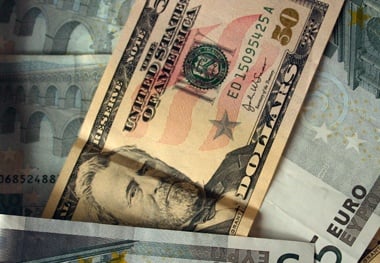1. Banking Fees
In addition to an intense dislike for fees I can avoid, I really don’t see the point of paying my bank for the privilege of letting them use my money — which is what banking fees amount to. Most banks have at least one free bank account available, although it may not offer every bell and whistle. Credit unions can be good options for finding a free account, as well, as long as you qualify to join the credit union. There are also several banks that have built their reputations on offering only free banking, like ING Direct and FNBO Direct. Personally, I use ING Direct and have found it to be ideal — if you’ve used another bank with a great free account, please let me know in the comments.
2. Budgeting software
With sites like Mint.com and Quicken Online offering free money management and budgeting software, I have a really hard time thinking of a reason to pay for budgeting software. In fact, the only concern that I’ve seen with online money management applications is the question of privacy. Sites like Mint have gone to some pretty significant lengths to protect users, but if you’re still worried, you might consider downloading an application. There aren’t as many solid software packages that you can download for free, I’m afraid, but I know there are a few options out there. If you’ve got a lead on a good one, please share it in the comments.
3. Tax Preparation
While there are a fair number of people who do need some help with tax preparation, it’s amazing just how many people can actually avoid paying to have their return prepared and e-filed. If you earned less than $56,000 in 2008, you’re automatically eligible for the IRS’ Free File program. Even if you earned more than that, you can get your taxes prepared for free with online options like TaxAct or TurboTax, as long as you have a relatively simple tax return. You may need to explore other options if your tax return doesn’t look like it will be so simple: if you have a business, unusual deductions or income from a wide variety of sources, a free filing option may not be able to correctly complete your return.
4. Credit Counseling
There are so many companies promising that they can get you out of debt or avoid foreclosure, for a reasonable fee. The fact of the matter, though, is that such companies are shady at best. You are able to access free credit counseling, as well as consumer debt and bankruptcy help through the National Foundation for Credit Counseling. The NFCC offers referrals to local credit counseling agencies. It’s worth noting that while you can avoid credit counseling fees, there are often fees associated with specific services offered by an agency. While these organizations are typically not-for-profit, they are still self-supporting.
5. Personal Finance Books
One of the librarians at my local branch told me that while our local library district has a huge collection of personal finance books — including many best sellers and new releases — they still don’t get checked out as often as you might think. If you’re working on straightening out your finances, and want to read a particular personal finance book, check your local library. If you’ve already got a library card, you can usually check a book’s availability online. You can have books brought to your local branch, add your name to the waiting list (if there is one) or even request that the library consider purchasing a particular book online in most library districts these days.
6. Your Credit Report
There’s actually legislation in place stating that each credit agency must provide you with a copy of your credit report each year. The three main agencies, Equifax, Experian and TransUnion, provide copies through AnnualCreditReport.com. You can also arrange for free copies of other reports, such as your ChexSystems’ report. ChexSystems is a reporting agency used by banks to report problem customers. You’re entitled to one free report each year from each agency.
More Than A Little Savings
You can save a surprising amount of money just by taking the time to find a free money management option. Whether we’re talking about banking or credit reports, there are plenty of free opportunities out there — and there’s not as big of a trade off for making the switch as you might think. In other areas, choosing a free option over a costly alternative usually means that you’re giving up an element of service or a few features. But with the monetary options I’ve listed above, there isn’t that much of a difference: you may even find yourself in a better position by avoiding services meant only to take your money.
